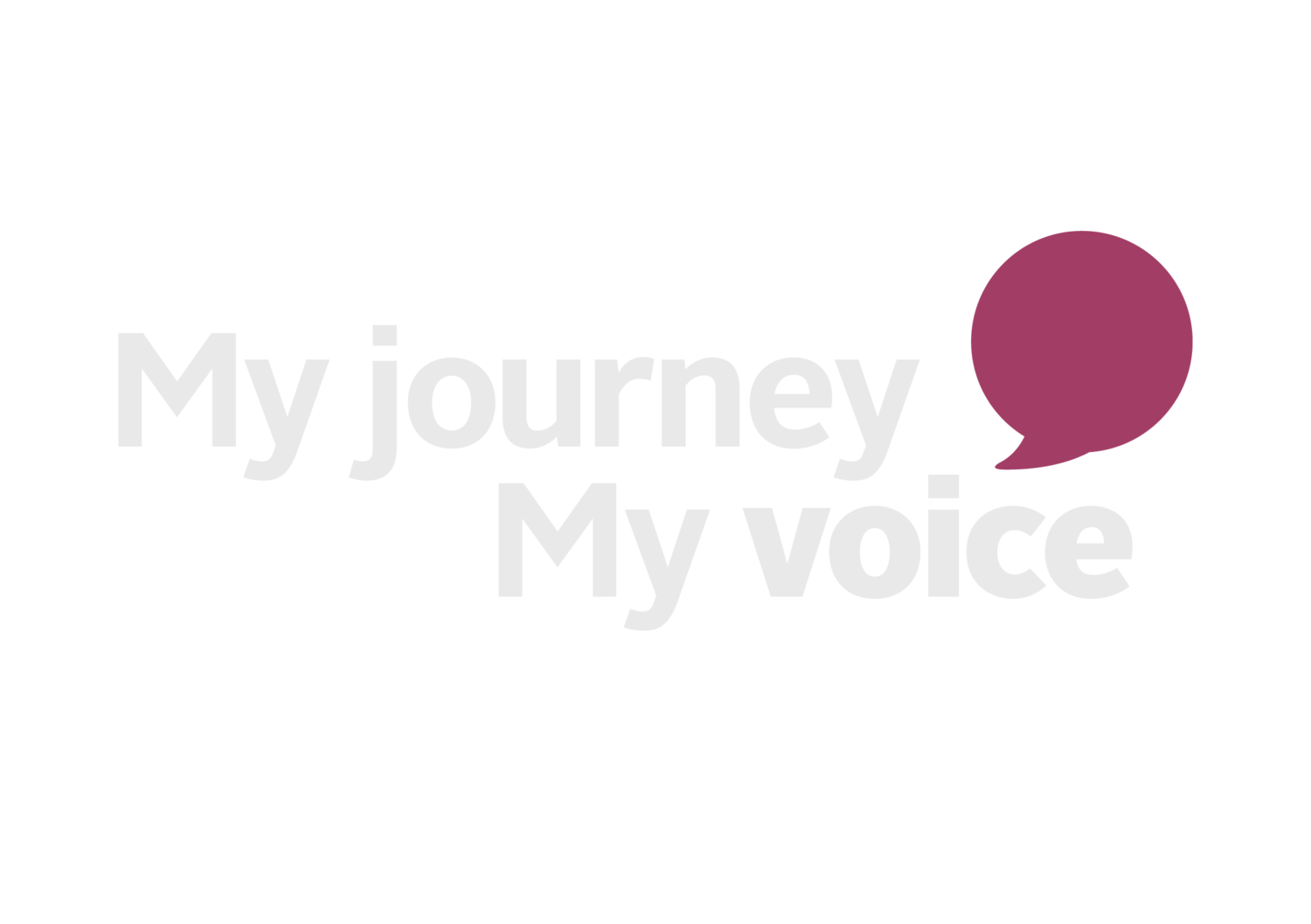by Karen Hall, Assistant Director External Relations and Policy, Disability Action.
Disability Action helped to bring My Journey My Voice into being and are the a forefront in supporting disabled people to have their voices heard through their advocacy and campaigning work. Here Karen reflects on her organisation's involvement in My Journey My Voice.
When the Royal College approached Disability Action about being in involved in this programme, we were delighted to get involved.
In our work, and in particular our advocacy work, we know the importance of communication and the difference it can make in ensuring a persons rights and autonomy respected and achieved. I'll talk about this a little more later.
Communication disability is hidden; misunderstood and very often is part of a more complex disability. This means there is greater risk of the barriers to communication not being considered or addressed.
That is why it is particularly welcome that it is the voices of the people that have experienced a communication disability that are heard in this exhibition. As I am sure you will agree it is their voices that show, how with the right support and resources, that barriers can be broken down.
In the Northern Ireland census nearly 30,000 people stated that their primary disability was communication. What that doesn't tell us is why, but what the exhibition demonstrates is the wide range of conditions that can have an impact on communication.
“Our hope is that Northern Ireland can become a more informed society and better understand communication disability.”
We know that it can be life long or acquired later in life. But whatever the stage in life, access to the speech and language therapy can have a significant impact.
We know the impact the support of speech and language therapy can have, especially through our advocacy work. In many cases by working in partnership with speech and language professionals and advocacy workers we have been able to ensure the rights of disabled people.
Whether it is about working with an individual to help them articulate where they would like to live, or working with them to ensure that they can provide the best evidence possible where they have been subject to abuse.
Abuse of disabled people can take many forms, physical, sexual and financial. Through our work we know that how a person communicates what has happened to them can be the most difficult barrier to breakdown. And we also know that not having the appropriate support to communicate can put someone at greater risk.
It can take considerable time to ensure that a person can communicate their preferences. Thinking about one journey in particular about supporting a person to choose where they lived. In the first instance, we though this isn't going to be possible. However, with support of speech and language therapy over a period of 3 months we were able to work with the individual so that they chose where they wanted to live. The person had lived in number of different places over a period of a year. Each time the living arrangements didn't work out for various reasons. After doing the work to find out where that person wanted to live, they had choice and I am glad to say are settled and enjoying their home.
It is dangerous to presume and that's why we never do, we are not experts. But by working in partnership with Speech and Language Therapists then we have a better chance of ensuring the rights of disabled people.
As some of you will be aware there is currently new mental capacity legislation going through the Assembly. The Bill is significant and the subsequent regulations and codes of practice that have yet to be developed will go some way in helping to ensure that the voice of the person is heard. However, as with others, we have raised some concerns about the Bill. It would take me more than 10 minutes to say it all but in short; we want to ensure that there is more focus on the wills and preferences of the person. It should, and must be about supported decision making.
It is through our work with people with complex disabilities that we know that with the right support, such as with communication, and then it is possible for people to make decisions about their lives.
I don't think it could be timelier that the exhibition is launched, to demonstrate how communication can impact on a person's life.
Through the wide range of engagement work that we do, one of they key things that disabled people tell us that they want to happen is raising awareness. Article 8 of the UNCRPD particularly focuses on awareness raising - and in our work on the Convention this is the one article that people with disabilities have told us is the most important.
The people that have shared their voices and journey for this exhibition are doing just that - raising awareness. Now we have to ensure is that the exhibition is seen and heard by as many people as possible.
By doing this then our hope is that Northern Ireland can become a more informed society and better understand communication disability.

